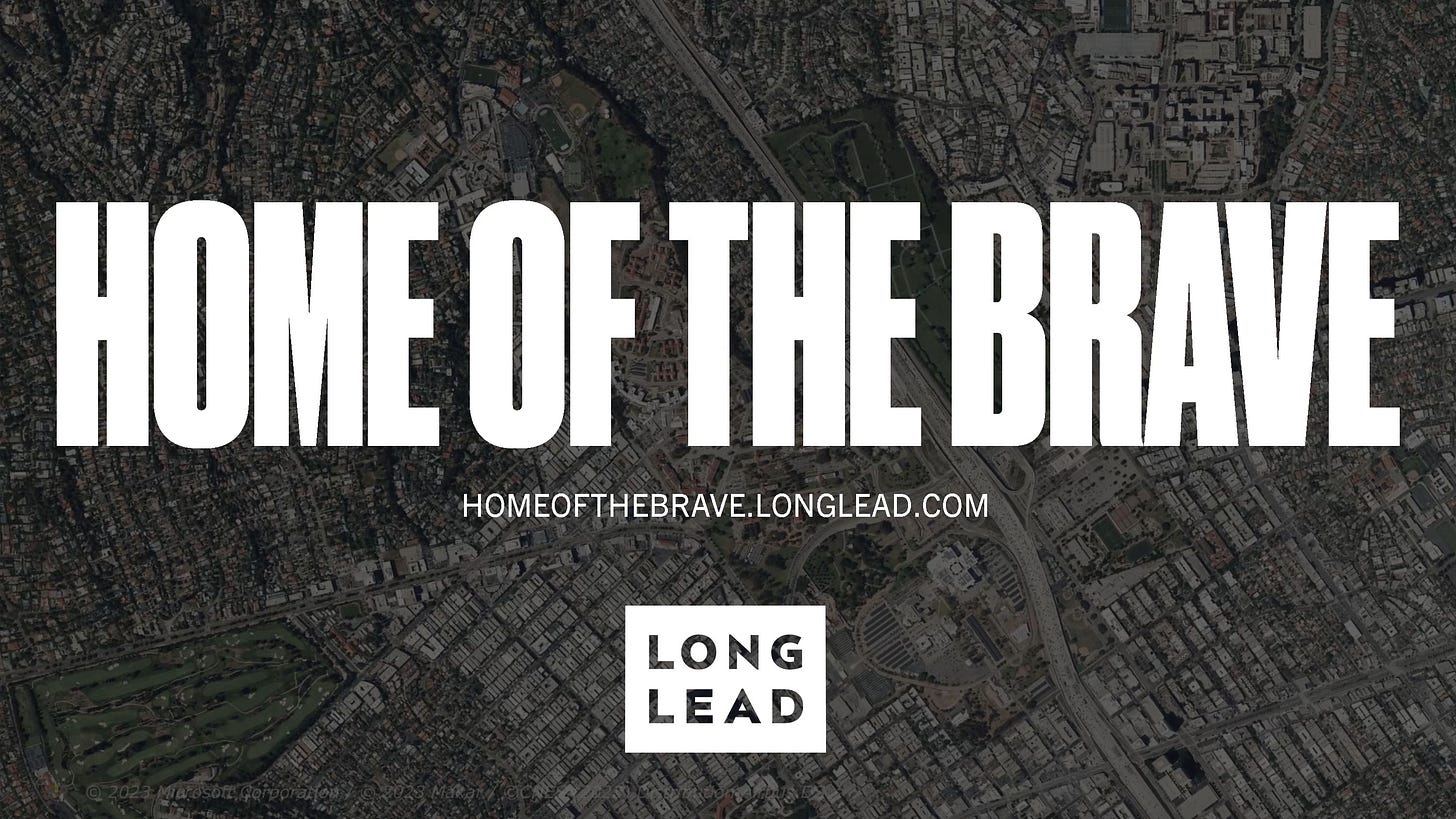Day 1: Opening statements in Powers v. McDonough
“Everyone in this courtroom has the same goal in mind — everyone wants to end veteran homelessness,” the government said. But “the parties have vastly different views as to how to achieve that goal.”

Powers v. McDonough began Tuesday, a historic lawsuit over discrimination claims brought by a class of military veterans against the Department of Veterans Affairs over housing at the West Los Angeles VA campus, a 388-acre property donated to the federal government in 1888 specifically to house disabled veterans.
“We talk a lot about the problems. There are solutions, and the solutions to veteran homelessness are multifaceted, but each and every one of these, your honor, is achievable,” plaintiff’s lawyer Roman Silberfeld, a partner at Robins Kaplan LLP, told U.S. District Judge David O. Carter in his opening statement.
“People may disagree about financing and construction methods,” said Silberfeld, “but I don't think there's disagreement that housing on campus is a necessity.”
Carter ruled in July that the VA, which is contracting with third-party developers to build HUD-backed housing that comes with income limits on the West LA VA campus, is discriminating against unhoused veterans who are deemed ineligible for the housing because their disability payments put them over HUD’s threshold. The judge said the VA has a fiduciary duty to use its 388-acre campus for housing and health care. Right now, the VA leases parts of the West LA property to outside groups for athletic facilities, oil-drilling, and public parking.
The judge’s recent orders don’t say how exactly the VA should change its services and approach to land use, and attorneys on both sides offered different ideas on Tuesday about what to do.
Silberfield detailed the history of the VA campus and explained how its property has been used for sports fields for UCLA, the Brentwood School. He said one acre of land “will support about 40 or 50 temporary support housing units.”
“So the objective is to place 1,000 temporary supportive housing units scattered around the property,” Silberfield said. “And that would require about 25 acres.”
Silberfield also told Carter he’ll hear testimony from Steve Soboroff, a Los Angeles developer who will testify about an “urgent need to place approximately 1,000 temporary housing units on the campus.” Another 2,800 additional permanent units would replace the 1,000.
“He knows what to do,” Silberfield told Carter. “He's identified the six priority sites and the three potential sites.… He can provide an overview of planning and execution on the project.”
Soboroff believes “a new leadership leadership structure is needed.”
Soboroff’s testimony will be complemented by testimony from developer Randy Johnson, who “also is of the view that 1,000 temporary housing units can be built on the property in 12 to 18 months to make a robust impact on homelessness in the veteran population.”
Johnson’s broader plans have a billion dollar price tag, but “that figure has a cushion in it because more information is needed in order to refine that estimate.”
Silberfield ended his opening by telling Carter he suspects VA attorneys “will get up here and say these things are impossible.”
But, “the VA has had a decade and a half to solve this problem. There are grievances about the use of this property that go back 50 years.”
“The time is up, your honor. It’s time to actually do something,” Silberfield said.
An epic government scandal hiding in plain sight
It’s the story of a land grab dating back to the U.S. Civil War, bursting with government malfeasance, neglect, graft, and even death.
Experience “Home of the Brave,” a multi-part multimedia feature on West LA’s unhoused crisis, now available from Long Lead.
Brad Rosenberg, a special counsel at the Department of Justice, began his opening for the government by telling Carter the lawsuit “is a curious case.”
“Everyone in this courtroom has the same goal in mind — everyone wants to end veteran homelessness,” Rosenberg said.
However, “the parties have vastly different views as to how to achieve that goal.”
“Planners have focused on the campus, and to be sure, the campus is an important part of the puzzle of ‘how do you solve veteran homelessness in Los Angeles,’ but it's only one part of that puzzle,” Rosenberg said.
Currently, “over 5,300 formerly homeless veterans” are housed in the “broader" Los Angeles community with the assistance of vouchers, Rosenberg said. The most recent count of homeless veterans “showed a 32 percent decrease” in Los Angeles and a 23 percent decrease “in the Los Angeles continuum of care,” which includes most of Los Angeles County.
“To be sure, there is still work to be done, but those are significant numbers and significant achievements,” he added.
Rosenberg said the plaintiff’s proposal for the VA campus seeks to have Carter “throw out… VA’s plans that were developed after multiple rounds of public input.”
“Simply put, and as we will show through evidence in this case, plaintiff's billion dollar idea for the development of the West LA campus is unmoored from reality,” Rosenberg said.
He said the lawsuit is “not just about housing or housing homeless veterans in the abstract.”
“It's about services that the agency provides and the medical needs of many in the veteran community,” he said. “It’s not about housing veterans generally. To be sure, that's part of VA’s mission, and VA is working very hard on achieving that goal.”
But, he said, “plaintiffs are going to have to tie it to medical benefits and the services the VA provides.”
“Everyone in this courtroom has the same goal in mind. Everyone wants to end veteran homelessness.” Brad Rosenberg, Dept. of Justice Special Counsel
Rosenberg said delays in housing construction are partly the VA’s fault, “but there’ll be testimony about how many of these delays were outside of VA’s control.”
“Remember, this is a campus with infrastructure that, in some cases, is well more than 100 years old,” Rosenberg said. “You've got to get your arms around that before you can figure out what the development's going to look like.”
Rosenberg also invited the judge to tour the campus himself as part of the trial. “I’m sure there's a way that we can get that on the record and the court would have the opportunity to see VAs efforts at developing the campus in real time,” Rosenberg said. “We have nothing to hide.”
Carter has not yet said if he’ll accept the invitation.

Witnesses on Tuesday included Robert Reynolds, a veterans advocate, Iraq war veteran and former U.S. Army specialist and infantryman. He testified about the horrors he experienced in war and the lack of support he had from the VA after returning home.
"Did anyone from the VA reach out to you and talk to you about obtaining benefits?" asked plaintiff's lawyer Mark Rosenbaum of Public Counsel.
"No," Reynolds answered.
"Or about getting involved in programs?" Rosenbaum asked.
"No," Reynolds answered.
"Or anything that the VA could offer you?" Rosenbaum asked.
"No," Reynolds answered.
"Did you see any sort of program or system to inform veterans of these wars as to what the VA could do for them?" Rosenbaum asked.
"I didn't," Reynolds answered.
He recalled going to the VA campus and being told “to go to the homeless veteran welcome center the next day.”
“And I was like, why am I going to a homeless veteran welcome center? I shouldn't be homeless. I'm here asking for help,” Reynolds testified.
He remembers asking where he could stay that night. “And she said, ‘There's nowhere you can stay tonight. And you're going to have issues with your dog. And that's when I walked out of the hospital, furious.”
Defense attorneys had no questions for Reynolds.
Proceedings for Powers v. McDonough will continue on Wednesday, August 7 at 8:30 a.m.






